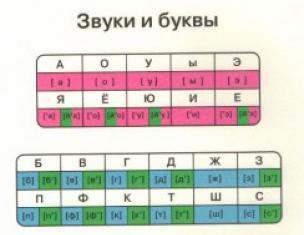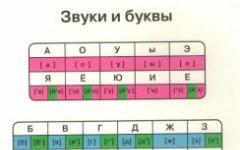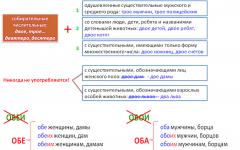In this article we will discuss one interesting point from the series "Policeman from Rublyovka-3: Home Again". Namely, we are interested in the question of what poem Grisha Izmailov read at the end of the 7th episode (23rd in total) in this comedy television series on the TNT channel.
In fact, Grisha himself said that this poem was not his, but Rudyard Kipling's. Most likely we are interested in the words of this wonderful poem translated by Konstantin Simonov. The 7th episode is called "Eternal Midnight".
The series begins with the fact that his old friend Victoria came to work for Grisha. She invited Grisha to visit her for her birthday, be sure to take the girl with him, so that he would also take with him a friend, who should also come with the girl. It seemed strange, and in the end it turned out to be so.
After all, the insidious Vika decided, as it turned out at the very end of the series, to conduct a quest. By the way, Grisha himself guessed that something was unclean here and everything was set up by Vika. A little about the quest. The lights in the house suddenly went out, and those present were held hostage at the house. Each person present had to be told a secret, so to speak about their "skeleton in the closet."
It was on this evening that a crack began in the relationship between Grisha and Alena. Grisha Izmailov, at the end of the 23rd (7th) episode of the third season "Policeman from Rublyovka", read the poem soulfully, it very well conveyed the character, or rather the inner fragile world of Grisha Izmailov, which was not what we are used to seeing Grisha. Yes, Grisha and at that moment, after Alena's revelations, showed himself to be tough, even rather cruel towards Alena, but this poem softened what was happening a little.
Grisha Izmailov reads the poem "Gray eyes - dawn ..."
The poem is called "GRAY EYES - DAWN ..." by Rudyard Kipling, here is the poem itself:
Gray eyes - dawn
Steamer siren
Rain, parting, gray trail
Behind the propeller of running foam.
Black eyes - heat
Sliding into the sea of sleepy stars,
And by the side until the morning
Kisses are a reflection.
Blue eyes are the moon
Waltz white silence
Daily wall
Inevitable goodbye.
Brown eyes are sand
Autumn, wolf steppe, hunting,
Jump, all by a hair's breadth
From falling and flying.
No, I'm not a judge for them,
Just without absurd judgments
I'm in debt four times
Blue, gray, brown, black.
Like four sides
The same light
I love - there is no fault -
All four of these colors.
Then, when everyone left, Grisha told Vika that he saw through her. And it turns out that Vika wants to do business on such quests and give a gift to Grisha. But it turned out not at all the way she had intended. Grisha told her that he liked her idea, that the iceberg was not to blame for the sinking of the Titanic. Then Vika asked Grisha to read the poem in full. Grisha read it, and his girls flashed before his eyes, there were four of them, like four cardinal points in this wonderful poem.
(Translated by Konstantin Simonov)
Gray eyes - dawn
Steamer siren
Rain, parting, gray trail
Behind the propeller of running foam.
Black eyes - heat
Sliding into the sea of sleepy stars,
And by the side until the morning
Kisses are a reflection.
Blue eyes are the moon
Waltz white silence
Daily wall
Inevitable goodbye.
Brown eyes are sand
Autumn, wolf steppe, hunting,
Jump, all by a hair's breadth
From falling and flying.
No, I'm not a judge for them,
Just without absurd judgments
I'm in debt four times
Blue, gray, brown, black.
Like four sides
The same light
I love - there is no fault -
All four of these colors.
Analysis of the poem "The Four Colors of the Eyes" by Kipling
The poems "Four Colors of Eyes" by Rudyard Kipling were translated into Russian by Konstantin Simonov.
The poem belongs to the early, pre-war translations of the writer. However, it was first published only in 1971. His English original was published in a collection of 1886. It was written even before the meeting of the writer with his wife Carolina, with whom they lived together all their lives. It turns out that the hero of the poem is just an amorous romantic about twenty years old. However, the prototype of the "gray eyes" is known for sure. This is Florence Gerrard, his practically fiancée - until he was forced to leave for India. In fact, he spent his early childhood in India, but now he returned there through the efforts of his father, who looked after him there as a journalist in the newspaper. The relationship came to naught, but for several more years R. Kipling could not heal his emotional wound and even wrote a novel "The Light went out", in many respects an autobiographical, where the girl he loves the main character, namely gray eyes. By genre - love lyrics, cross rhyme, 6 stanzas. The first quatrain is dedicated to the departure, the farewell to the gray-eyed girl: the steamer siren, parting. Further the steamer becomes a symbol life path... He meets sultry black-eyed girls, and then - proud blue-eyed, finally, the gaze of brown eyes hits him like a shot of a well-aimed shooter. The work ends with an honest confession with a secret smile: I am four times indebted to eyes of all colors. He keeps each owner of beautiful eyes in his heart, someone with pain, someone with gratitude. However, not a single one is with him. The poet continues a series of metaphors, associations associated with color. Many enumerative gradations, sublime and unexpected comparisons (moon, sand, dawn), sound writing, few verbs, images are almost synesthetic. K. Simonov set the goal of his free transcription both to preserve romance and, at the same time, to universalize the content. He removed geographic and temporal signs. For example, the names of waltzes, the mention of the Southern Cross, and the relentless pleading refrain, the oath of lovers, have disappeared. However, the feeling of exoticism remained. The finale also slightly changed under his pen. The hero of R. Kipling recalls Cupid's intrigues and throws up his hands, admitting that he is going to continue to succumb to the spell of female gaze, to promise love to the grave - and whatever happens. The hero of K. Simonov is a little more restrained, although he also admits himself to be defeated.
"Four Colors of Eyes" by R. Kipling is an ode to the charms of women's eyes and a complaint about your poor broken heart.
Rudyard Kipling
Lovers' Prayer
Grey eyes. - Sunrise,
Wet berth boards.
Is it raining? Are there tears? Farewell.
And the steamer departs ...
Our loyalty of the year ...
Faith and Hope? Yes:
Sing the prayer of all lovers:
“Do we love you? So - forever! "
Black eyes. - Shut up!
The whisper at the wheel lasts.
Foam flows along the sides
Into the splendor of the tropical night
The Southern Cross is more transparent than ice.
The star falls again.
Here is the prayer of all lovers:
“Do we love you? So - forever! "
Brown eyes. - Plenty.
Steppe. Horses are racing side by side.
And hearts in the old tone
The stomp echoes the mountains.
And - the bridle is pulled ...
And then it sounds in my ears
Again the prayer of all lovers:
“Do we love you? So - forever! "
Blue eyes. - Hills
Silver in the moonlight
And shivers in Indian summer
A waltz beckoning into the thick of darkness ...
“Officers… Mabel… when? ..
Witchcraft. Wine. Silence ...
This sincerity of recognition:
“Do we love you? So - forever! "
Yes ... But life looked gloomy.
Have pity on me: after all -
All in debt to Cupid,
I am four times bankrupt!
And is it my fault?
If only one again
Smiled graciously
I would forty times then
He sang the prayer of all lovers:
“Do we love you? So - forever! "
(Translated by V. Betaki)
Rudyard Kipling
(Translated by Konstantin Simonov)
Gray eyes - dawn
Steamer siren
Rain, parting, gray trail
Behind the propeller of running foam.
Black eyes - heat
Sliding into the sea of sleepy stars,
And by the side until the morning
Kisses are a reflection.
Blue eyes are the moon
Waltz white silence
Daily wall
Inevitable goodbye.
Brown eyes are sand
Autumn, wolf steppe, hunting,
Jump, all by a hair's breadth
From falling and flying.
No, I'm not a judge for them,
Just without absurd judgments
I'm in debt four times
Blue, gray, brown, black.
Like four sides
The same light
I love - there is no fault -
All four of these colors.
The Lovers' Litany
Eyes of gray - a sodden quay,
Driving rain and falling tears,
As the steamer puts to sea
In a parting storm of cheers.
Sing, for Faith and Hope are high -
None so true as you and I -
Sing the Lovers' Litany: -
"Love like ours never die!"
Eyes of black - a throbbing keel,
Milky foam to left and right;
Whispered converse near the wheel
In the brilliant tropic night.
Cross that rules the Southern Sky!
Stars that sweep, and turn, and fly
Hear the Lovers' Litany: -
"Love like ours never die!"
Eyes of brown - a dusty plain
Split and parched with heat of June.
Flying hoof and tightened rein,
Hearts that beat the ancient tune.
Side by side the horses fly,
Frame we now the old reply
Of the Lovers' Litany: -
"Love like ours never die!"
Eyes of blue - the Simla Hills
Silvered with moonlight hoar;
Pleading of the waltz that thrills,
Dies and echoes round Benmore.
“Mabel”, “Officers”, “Good-bye”,
Glamor, wine, and witchery -
On my soul's sincerity,
"Love like ours never die!"
Maidens, of your charity,
Pity my most luckless state,
Four times Cupid's debtor I -
Bankrupt in quadruplicate.
Yet, despite my evil case,
An a maiden showed me grace,
Four-and-forty times would I
Sing the Lovers' Litany: -
"Love like ours never die!"
Poems by Kipling, and I like them. I can wear out my own, but why, when there are such beautiful poems.
Gray eyes - dawn
Steamer siren
Rain, parting, gray trail
Behind the propeller of running foam.
Black eyes - heat
Sliding into the sea of sleepy stars,
And by the side until the morning
Kisses are a reflection.
Blue eyes are the moon
Waltz white silence
Daily wall
Inevitable goodbye.
Brown eyes are sand
Autumn, wolf steppe, hunting,
Jump, all by a hair's breadth
From falling and flying.
No, I'm not a judge for them,
Just without absurd judgments
I'm in debt four times
Blue, gray, brown, black.
Like four sides
The same light
I love - there is no fault -
All four of these colors.
Reviews
The daily audience of the Potikhi.ru portal is about 200 thousand visitors, who in total view more than two million pages according to the traffic counter, which is located to the right of this text. Each column contains two numbers: the number of views and the number of visitors.







